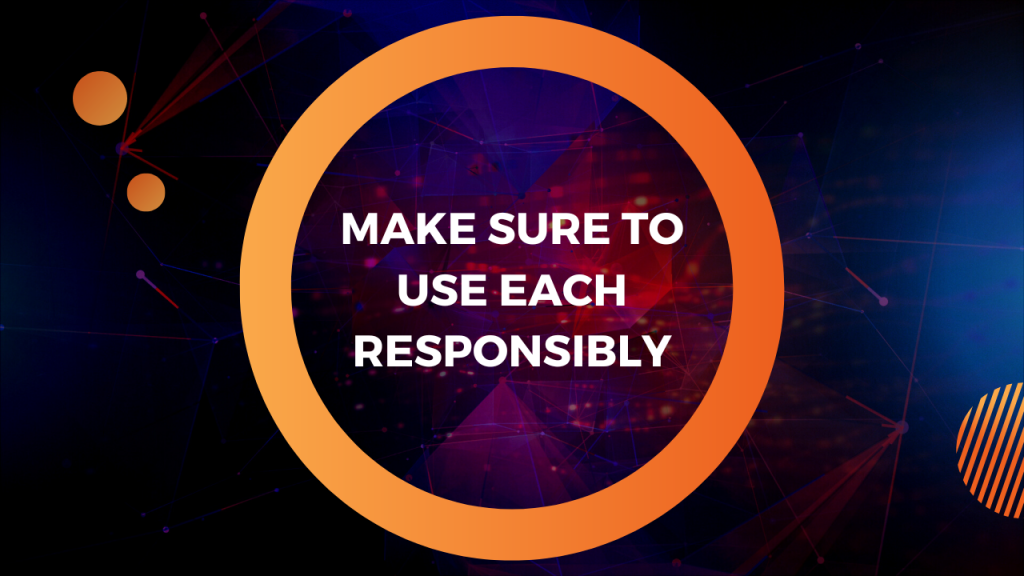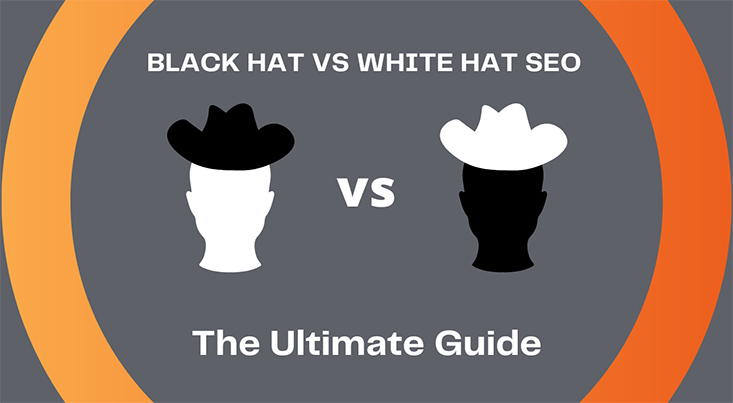Black Hat vs White Hat SEO: The Ultimate Guide
Introduction
Search Engine Optimization (SEO) is a crucial aspect of digital marketing that can determine the success or failure of an online business. With the increasing competition in the online space, it is important to understand the various techniques and strategies that can help your website rank higher on search engines.
The two main categories of SEO are Black Hat SEO and White Hat SEO. While Black Hat SEO involves unethical and manipulative tactics to achieve quick results, White Hat SEO is based on ethical practices that provide sustainable results.
What is Black Hat SEO?

Black Hat SEO refers to a set of unethical and manipulative tactics used to achieve higher search engine rankings in a short amount of time. These tactics violate the guidelines set by search engines, such as Google, and can result in severe consequences, such as being banned from the search engine altogether. The main objective of Black Hat SEO is to manipulate search engine algorithms to rank higher in the search results, regardless of the quality of the content or user experience. The practices used in Black Hat SEO are often seen as unethical, as they harm the user experience, deceive search engines, and negatively impact the quality of the internet.
Examples of Black Hat SEO tactics include:
- Keyword stuffing
- Cloaking
- Duplicate content
- Link schemes
- Hidden text or links
Keyword stuffing
One of the most common Black Hat SEO tactics is keyword stuffing. This involves filling a web page with keywords in an attempt to manipulate the search engine rankings. This can be done by repeating the same keyword over and over, using irrelevant keywords, or hiding keywords in the background of the page. This tactic is often used to rank higher for specific keywords, but it can result in poor user experience as the content becomes unreadable and irrelevant.
Cloaking
Another popular Black Hat SEO technique is cloaking. This involves showing different content to the search engines than what is shown to the users. The search engine bots see a different version of the website than the users, which is optimized for the search engines. This practice is often used to hide irrelevant or low-quality content from the users, while still ranking high in the search results. This technique is seen as unethical and can result in severe consequences, such as a ban from the search engine.
Duplicate content
Duplicate content is another common Black Hat SEO tactic. This involves copying content from other websites and using it on your own website. This can be done to rank higher for specific keywords or to generate traffic to your website. However, using duplicate content can harm the user experience as well as the quality of the internet. It can also result in penalties from search engines, such as lower search engine rankings or being banned from the search engine altogether.
Link schemes
Link schemes are also a common Black Hat SEO technique. This involves exchanging links with other websites, with the main aim of manipulating the search engine rankings. Link schemes can involve buying or selling links, participating in link farms, or exchanging links with irrelevant websites. This can result in higher search engine rankings, but it also harms the user experience and the quality of the internet.
Hidden text or links
Finally, hidden text or links are another common Black Hat SEO tactic. This involves hiding text or links on a website to manipulate the search engine rankings. This can be done by using the same color as the background or using small text sizes. This tactic is often used to hide irrelevant or low-quality content from the users, while still ranking high in the search results. Hidden text or links can result in severe consequences, such as lower search engine rankings or being banned from the search engine altogether.
In conclusion, Black Hat SEO is a set of unethical and manipulative tactics used to achieve higher search engine rankings in a short amount of time. These tactics violate the guidelines set by search engines and can result in severe consequences, such as being banned from the search engine altogether. Common Black Hat SEO tactics include keyword stuffing, cloaking, duplicate content creation, link schemes, and hidden text or links. These practices can harm the user experience, deceive search engines, and negatively impact the quality of the internet. It is important to avoid these practices and focus on creating high-quality content and providing a positive user experience to achieve long-term success in search engine optimization.
What is White Hat SEO?

White Hat SEO is a term used in the field of digital marketing to describe the ethical and sustainable practices used to improve a website’s ranking on search engine results pages (SERPs). This approach to SEO is in contrast to Black Hat SEO, which involves tactics that violate the guidelines set by search engines such as Google, Bing, and Yahoo. The goal of White Hat SEO is to create a website that provides a high-quality user experience and satisfies the needs of both users and search engines.
Examples of White Hat SEO tactics include:
- Keyword research and optimization
- Quality content creation
- Link building through outreach and collaboration
- On-page optimization
- Mobile optimization
Keyword research and optimization
One of the key elements of White Hat SEO is keyword research and optimization. This involves identifying the keywords and phrases that users are searching for and using them strategically in the website’s content and meta tags. By focusing on keywords that are relevant to the website’s content, White Hat SEO practitioners help search engines understand what the website is about and match it with users’ search queries.
Quality content creation
Another important aspect of White Hat SEO is quality content creation. Search engines favor websites that provide high-quality, informative content that is valuable to users. This includes blog posts, articles, infographics, videos, and other forms of multimedia that engage users and encourage them to spend more time on the website. By creating engaging and relevant content, White Hat SEO practitioners help to build trust with users and improve the reputation of the website in the eyes of search engines.
Link building through outreach and collaboration
Link building is another key aspect of White Hat SEO. This involves acquiring links from other websites to your own site. These links serve as a “vote of confidence” from other websites, indicating that your content is valuable and relevant. White Hat SEO practitioners engage in link building through outreach and collaboration, reaching out to other websites and building relationships that lead to mutually beneficial links. This process takes time and effort, but the long-term benefits are well worth it.
On-page optimization
On-page optimization is another critical aspect of White Hat SEO. This involves making technical changes to the website to improve its ranking on search engine results pages. This includes optimizing the website’s meta tags, header tags, and images, as well as ensuring that the website is easy to navigate and provides a positive user experience. By focusing on these elements, White Hat SEO practitioners help to improve the overall quality of the website and increase its visibility on search engines.
Mobile optimization
Finally, mobile optimization is an increasingly important aspect of White Hat SEO. As more and more users access the internet through mobile devices, search engines are placing a greater emphasis on websites that provide a positive mobile user experience. This includes having a responsive design that adjusts to different screen sizes and ensuring that the website’s content is easy to view and navigate on mobile devices. By focusing on mobile optimization, White Hat SEO practitioners help to improve the overall quality of the website and increase its visibility on search engines.
In conclusion, White Hat SEO is a set of ethical and sustainable tactics that help to improve the quality and user experience of a website. These tactics include keyword research and optimization, quality content creation, link building, on-page optimization, and mobile optimization. By focusing on these elements, White Hat SEO practitioners help to improve the overall ranking of the website on search engine results pages and provide a positive experience for users.
The Benefits of White Hat SEO
White Hat SEO provides several key benefits over Black Hat SEO, making it a more effective and responsible approach to search engine optimization. In this section, we will explore these benefits in more detail.
Sustainable Results
One of the key benefits of White Hat SEO is that it provides sustainable results that can last for a long time. Unlike Black Hat SEO, which uses tactics that violate search engine guidelines, White Hat SEO focuses on improving the overall quality and user experience of a website. This results in a website that is more likely to rank well on search engine results pages (SERPs) over the long-term. When a website is optimized for search engines using White Hat techniques, it is less likely to be penalized or de-indexed, which can result in a significant drop in traffic and visibility.
Ethical and Responsible Approach
White Hat SEO is a more ethical and responsible approach to SEO compared to Black Hat SEO. This is because it focuses on improving the quality and user experience of a website, rather than using tactics that violate search engine guidelines. By following ethical practices, White Hat SEO practitioners are helping to create a more trustworthy and credible online environment. This can help to build a positive reputation for your brand, which can lead to increased trust and credibility with your target audience.
Improved User Experience
White Hat SEO can help to improve the user experience of your website, leading to increased traffic, engagement, and conversions. When a website is optimized for search engines using White Hat techniques, it is more likely to provide a positive user experience. This includes having a responsive design that adjusts to different screen sizes, easy-to-use navigation, and high-quality, relevant content. By focusing on the user experience, White Hat SEO practitioners help to create a website that is more appealing to users and search engines, leading to increased traffic and engagement.
Increased Traffic and Engagement
By providing a positive user experience and ranking well on search engine results pages, White Hat SEO can lead to increased traffic and engagement on your website. When users find your website through search engines, they are more likely to spend time on your site and interact with your content. This increased engagement can lead to increased conversions and sales, making White Hat SEO a valuable investment for your business.
Improved Brand Reputation
White Hat SEO can also help to improve the reputation of your brand. By using ethical and sustainable tactics, you can demonstrate your commitment to providing a positive user experience and following best practices in the field of SEO. This can help to build trust and credibility with your target audience, leading to increased brand recognition and a more positive reputation.

In conclusion, White Hat SEO provides several key benefits over Black Hat SEO, making it a more effective and responsible approach to search engine optimization. By focusing on improving the quality and user experience of a website, White Hat SEO practitioners can help to create a more trustworthy and credible online environment, increase traffic and engagement, improve brand reputation, and provide sustainable results over the long-term. By investing in White Hat SEO, businesses can achieve better search engine visibility and achieve their marketing goals in a responsible and ethical manner.
The Risks of Black Hat SEO
The practice of Black Hat SEO is becoming increasingly unpopular as search engines continue to crack down on these unethical practices. Despite this, many businesses and individuals still resort to Black Hat tactics, often because they are looking for a quick and easy way to boost their search engine rankings. However, the risks associated with Black Hat SEO far outweigh the potential benefits, making it a dangerous and irresponsible approach to search engine optimization. In this section, we will explore the risks of Black Hat SEO in more detail.
Ban from Search Engines
One of the biggest risks associated with Black Hat SEO is the possibility of being banned from search engines. Search engines, such as Google, have very strict guidelines for what is considered acceptable and unacceptable practices in the field of SEO. If a website is found to be using Black Hat tactics, it may be penalized, de-indexed, or even banned from the search engine’s results pages. This can result in a significant loss of traffic, visibility, and revenue for the affected website.
Damage to Brand Reputation
Another risk associated with Black Hat SEO is the potential harm it can do to the reputation of your brand. By using unethical and unsustainable tactics, you may be perceived as untrustworthy and unprofessional by your target audience. This can lead to a loss of trust and credibility, which can be difficult to recover from. In the online world, reputation is everything, and damaging your brand’s reputation can have long-lasting consequences for your business.
Decreased Traffic and Conversions
Black Hat SEO can also result in a decrease in traffic, engagement, and conversions. This is because search engines may penalize or remove your website from their results, making it harder for users to find your site. Additionally, even if your website is not penalized, the tactics used in Black Hat SEO often result in a poor user experience, which can lead to decreased engagement and conversions. By using Black Hat tactics, you may be sacrificing the long-term success of your website in exchange for short-term gains.
Wasted Time and Money
Finally, Black Hat SEO is often a waste of time and money. The tactics used in Black Hat SEO are not sustainable, meaning that the benefits are often short-lived. Additionally, the penalties and consequences associated with Black Hat SEO can result in a significant amount of time and money being spent on recovery and repair. In the end, businesses that resort to Black Hat SEO may find that they have wasted valuable resources, only to see their search engine rankings and reputation suffer.
In conclusion, Black Hat SEO is a dangerous and irresponsible approach to search engine optimization. The risks associated with Black Hat SEO far outweigh the potential benefits, making it a poor choice for businesses and individuals looking to improve their search engine visibility. By using White Hat SEO tactics, businesses can achieve their marketing goals in a responsible and sustainable manner, while avoiding the risks associated with Black Hat SEO.
Conclusion
In conclusion, White Hat SEO is the best approach for achieving long-term success in the online space. While it may take longer to see results, the benefits of sustainable, ethical and high-quality SEO far outweigh the quick and short-lived results achieved through Black Hat SEO. To ensure the success of your online business, it is important to adopt a White Hat SEO approach and focus on providing value to your audience through quality content and a positive user experience.











Write a Comment